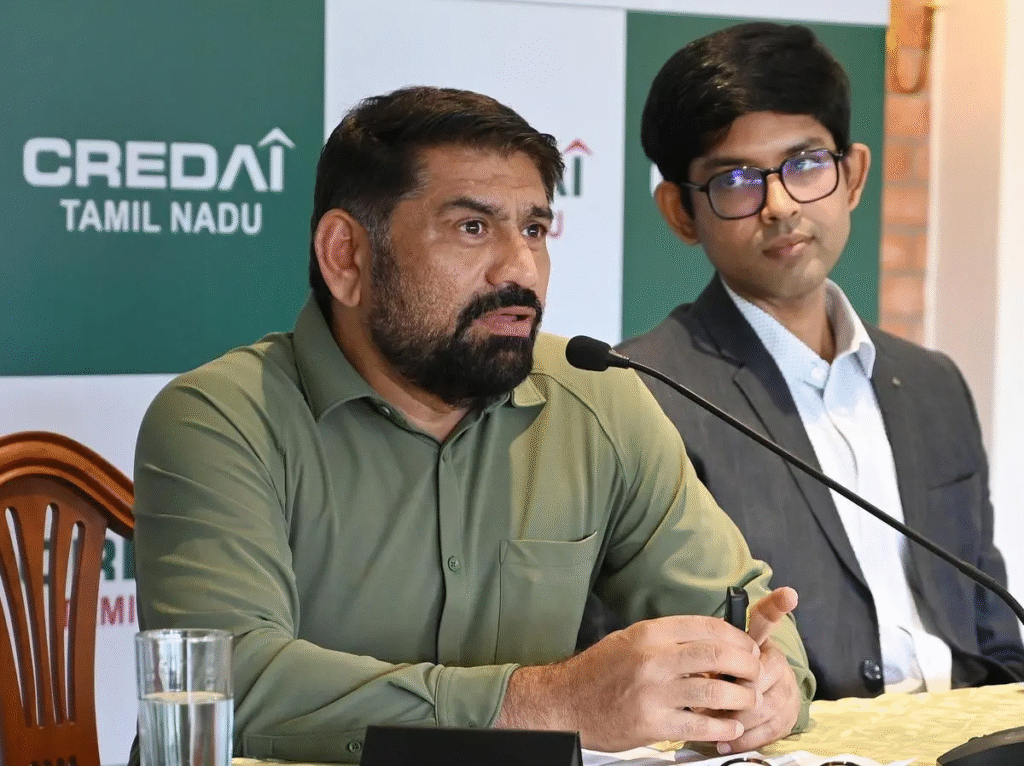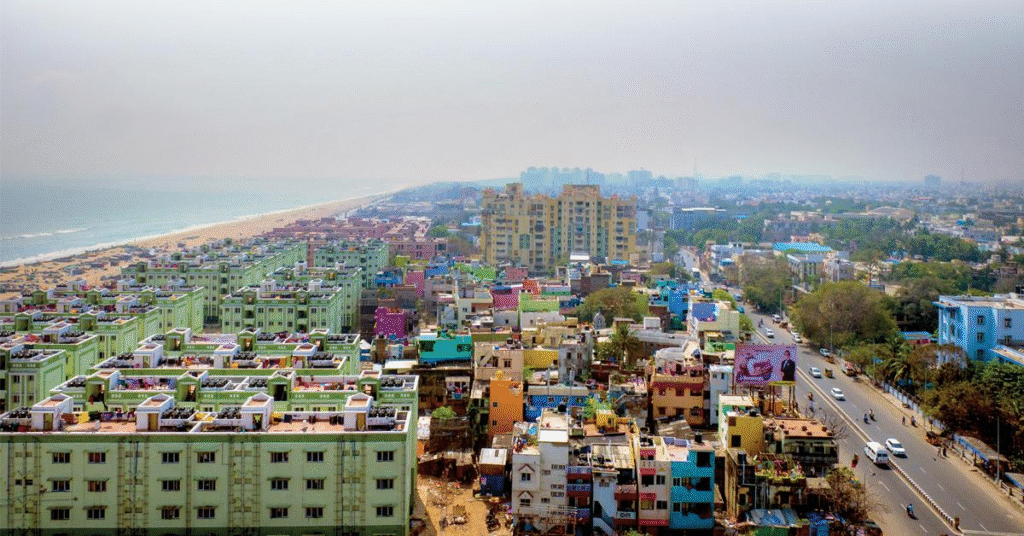Now Reading: TN Real Estate Delays Slammed, Master Plan Urged Fast
-
01
TN Real Estate Delays Slammed, Master Plan Urged Fast
TN Real Estate Delays Slammed, Master Plan Urged Fast

Table of Contents
Chennai, Tamil Nadu – The real estate sector in Tamil Nadu is raising a red flag. A leading real estate industry body has urged the state government to speed up the long-pending Master Plan update and set up a single-window clearance system to fast-track approvals for real estate projects.
According to top real estate developers and industry experts, delays in project approvals, unclear zoning rules, and outdated planning documents are hurting investments and slowing down housing growth in the state.
Why the Master Plan Is So Important
The Master Plan is a critical planning document that defines how a city or region will develop in the future—covering infrastructure, housing, transport, green spaces, and commercial zones. The current Master Plan for Chennai, prepared by the Chennai Metropolitan Development Authority (CMDA), was last updated in 2008.

That means Tamil Nadu’s capital is running on an urban development plan that is over 15 years old, despite explosive growth in population, real estate demand, and urban migration.
“The urban landscape has changed dramatically. We need a new Master Plan that reflects current needs and future growth,” said a senior member of the Confederation of Real Estate Developers’ Associations of India (CREDAI).
He added, “Without a clear vision and updated zoning laws, it’s hard for developers to plan projects or attract investors. The government must act now.”
Need for a Single-Window Approval System
Along with the Master Plan, developers are also asking for a single-window approval mechanism that would make getting permissions for new projects easier and faster. At present, real estate developers in Tamil Nadu must get approvals from multiple departments, including the CMDA, fire and safety, environmental clearance, water board, electricity, and more.
This multi-step process can take several months to over a year, leading to increased project costs, delays, and reduced interest from investors.
“Time is money in real estate,” said a Chennai-based developer. “Other states like Maharashtra and Karnataka have already moved to a single-window system. Tamil Nadu should not fall behind.”
Developers say a unified digital portal for approvals would not only cut red tape but also improve transparency, accountability, and investor confidence.
Why It Matters to Homebuyers
This issue does not only affect developers—it also affects homebuyers and renters. When projects are delayed due to slow approvals, the supply of new homes drops, and prices go up.
With Tamil Nadu’s urban population growing steadily, there is a huge demand for affordable housing, especially in Chennai, Coimbatore, and other major cities.
“A faster approval system and a clear Master Plan would help bring more houses into the market, control prices, and meet the dreams of first-time homebuyers,” said a member of the Tamil Nadu Real Estate Regulatory Authority (TNRERA).
Economic Impact on Tamil Nadu
The real estate sector is one of the largest job creators and contributors to the state’s GDP. It also supports many allied industries like cement, steel, transport, and interior design.
According to data from industry associations:
- The Tamil Nadu real estate sector contributes over ₹60,000 crore annually to the state economy.
- The sector provides direct or indirect employment to more than 20 lakh people.
- Chennai alone accounts for nearly 40% of new residential projects launched in the state.
“Speeding up approvals and planning reforms will help boost employment, attract FDI, and increase tax revenues,” said an economist from Madras School of Economics.
Call for Government Action
CREDAI and other bodies have submitted a formal request to the state government, urging it to:
- Release the updated Master Plan 2046 without further delays.
- Implement a fully digital single-window approval system.
- Set clear timelines for project approvals and public consultations.
- Ensure coordination between state and local urban bodies.
Several real estate leaders also met with senior officials from the Housing and Urban Development Department to raise these issues directly.
While the state government has acknowledged the need for reforms, officials say the Master Plan process involves public consultations, environmental studies, and long-term planning.
“We are working on it, but such reforms take time. Stakeholder inputs are being considered,” said a senior official.

What’s Next?
Industry watchers believe that strong political will and better coordination between government agencies are key to unlocking Tamil Nadu’s full real estate potential.
With upcoming elections and rising urban demand, the government may feel more pressure to act fast. Many in the industry hope that 2025 will be a turning point for planning and approvals in the state.
“If Tamil Nadu wants to stay ahead of the curve, we need to move from red tape to reform,” said a CREDAI representative. “Let’s plan for the future—today.”
Also read – HYDRAA Bulldozes Illegal Real Estate Built on Cemetery Land






















